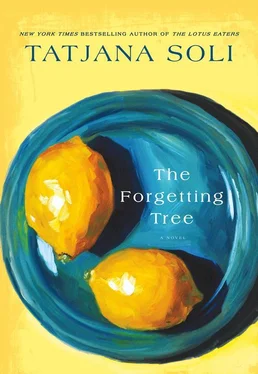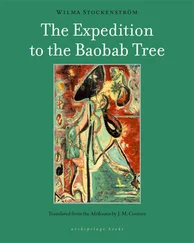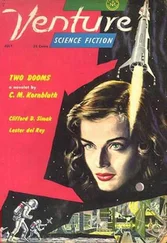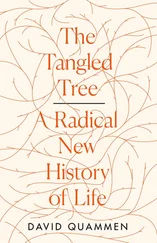Exhausted, she would play scales on the piano late each afternoon. She read a chapter of a book each night before Forster came to bed and began to stroke the hem of her nightgown. Mornings she sat on the patio and filled notebooks with descriptions of the orchards, of the clouds, of the physical labors of her days and the sensual pleasures of her nights. But the demands of the house and ranch defeated her efforts. She never made it to the doctor. Within months, she was pregnant with their first child.
* * *
The original farmhouse had been built in the twenties by Forster’s paternal grandparents, who lost a fortune in the shipping yards of Hamburg and had to emigrate to avoid creditors. Each successive birth and handing over from generation to generation had resulted in more rooms, more painted adobe brick and wood. The house meandered, organic to the demands made on it, much like a nest cradled in branches of a tree, or the underground warrens of gophers. Forster’s uncle from back East had visited one summer and had the inspiration to build the only wraparound, screened porch in the area, not believing the neighboring farmers who told him there were no pests to hide away from in the dry, subtropical climate.
Hanni made a point to show Claire the details of the kitchen, commercial in size, with a ten-burner stove, brick fireplace, cast-iron spits to roast large cuts of meat, double refrigerators, and thick, deep, hammered-copper sinks, imported from Germany in a brief flash of affluence thirty years before, that had to be scoured with a special mix of lemon juice and salt that stung the hands.
Ugly and practical, this was not a modern, status-seeking, unused kitchen, but rather the center of a working ranch. Forster’s grandmother and Hanni had served up three meals a day to a working crew of fifty men during the height of picking season.
In the early days, before the advent of the commercial loncherías , the women, with the help of half a dozen of the Mexican laborers’ wives, had become adept at making homemade tortillas, large pots of beans and rice, great vats of chili con carne, or chili verde, long aluminum trays of enchiladas and burritos, with bowls of whole jalapeños and zanahoria en escabeche, marinated carrots, on the side. The women in Forster’s family ghettoized their German recipes to Sunday dinner, with their Kartoffelkloesse, spaetzle, and Schweineschnitzel . The heavy old-world food became synonymous in the minds of their children and grandchildren with the boredom of rote church attendance, the tightness of clothes not meant for everyday, with dry ritual and starched table linen not meant to be spilled on.
Claire fingered the faucets that had cross handles with porcelain inserts that read HEIβE on one side and KÄLTE on the other. She resisted the urge to run out of the room with her swelling belly, to return to her parents’ apartment, to her books. Frightened she had made a mistake, was losing herself before there was even a self to lose.
“This was all here before I came,” Hanni confessed.
“Didn’t you want to make it your own?”
“The ranch changes you, not the other way around.”
Already Claire was growing tired of these homilies, but she did not run out of the kitchen that day. Slowly, over time, she came to love the sensibleness of the house, how it stripped her of small vanities one by one, made her come to hate waste and ostentation.
* * *
For the first months of the marriage, Hanni sat back and watched her new daughter-in-law work. The only half compliment she gave her was “Well, at least you don’t have time to read all those books.”
It was true that Claire felt herself losing a battle. She spent an hour trying to write about the sunlight through the leaves of orange trees, and it read like a student’s clumsy primer with no hint of the real experience. But Hanni was wrong that she didn’t read. Every moment she could, she stole away and spent it in books — the reading kept her from chafing over the narrowing of her current life.
Saturday afternoons, frustrated by her writing, tired of having only her mother-in-law for company, Claire began a tradition of baking a cake or pastries, lighting the samovar, and brewing tea. She sent out invitations to all the neighbors. At first Hanni resisted the fuss, not willing to put on nice clothes and waste time sitting in the living room, but when the ladies of the surrounding ranches began to stop by, the reintroduction of community, she relented. Saturday teatime became a staple over the years. In this way Claire met Mrs. Girbaldi, the biggest land dowager in the area, both shrewder and kinder than Hanni, who became Claire’s confidant. Her platinum-dyed hair and powdered-white skin created a monochromatic palette, a paleness broken only by the features she chose to paint on, maroon lips and heavily lined eyes, which aspired to a standard of fifties bygone beauty that hid her sharp, businesslike mind.
Hanni complained privately that Mrs. Girbaldi liked to “play poor.” Her father had been a ruthless businessman and acquired land cheaply; her husband was even more ruthless and greedy. When he passed away, everyone was surprised that Mrs. Girbaldi was tougher than either of the men. Talk was that not only did she want to break up her family’s holdings, she wanted to zone for high density to maximize profits. Claire circled, only half listening to the gossip.
“Did you hear about the Hahn ranch?”
“No, what?”
“I shouldn’t talk.”
“Tell!”
“An actor—”
“Bought it?”
“Cheap. Some teenage heartthrob named Don Richards. Got it as a tax shelter. Old Hahn couldn’t grow a weed.”
“A pity.”
“Too much time nursing the bottle.”
“But another actor. When one comes, they all start to follow.”
“That’s the end of the place.”
* * *
After their first, Gwen, was born, the couple walked the orchards each evening. At a leisurely pace, Forster carrying the baby, it took almost an hour to reach the lake. They usually watched the ducks swimming back and forth in the last of the sun. Claire was too new to notice that the water level was low, reeds were overtaking a larger and larger part of the lake, a drought that meant even higher water prices and rationing. Forster spread a blanket beneath the large lemon tree, and Claire nursed Gwen while he paced back and forth. Sometimes, midsentence, he stopped and stared at her. “What?” “I never knew it would be like this,” he said, cradling the baby’s delicate skull in his big palm.
In quick succession, two daughters were born: Gwen, then Lucy. Claire and Hanni had their days full with the duties of two babies. With each birth, Claire felt more happily anchored, rooted, into her new life. She forgot her former reluctance, forgot also her books, but the joy she took in mothering reassured her that she had made the right decision. Still, some nights, walking a crying child, she did have a sense of being swallowed up. In time, she promised, she would return to her books, keep digging for that deeper vein of life that she had abandoned.
Claire and Forster discussed this being the end of their childbearing, but both of them were so exhausted most days that contraception didn’t seem necessary. The moment she knew she was pregnant a third time, she also sensed it was a boy. Joshua. Unlike the first two, this birth was difficult, and the baby was kept in intensive care for a few weeks. When they brought him home at last, he was colicky, hardly ever sleeping through the night, something Claire hadn’t experienced with the girls.
One adult had to sacrifice sleep each night, or the whole house would. As Joshua grew older, he didn’t like to eat, and it took all Hanni’s ingenuity to feed him. But from the first moment, he was clearly the last piece of the puzzle, making the family complete. Not knowing that life was less than perfect before, after Joshua’s birth life could be described in no other way than balanced. Perfectly, miraculously balanced.
Читать дальше












